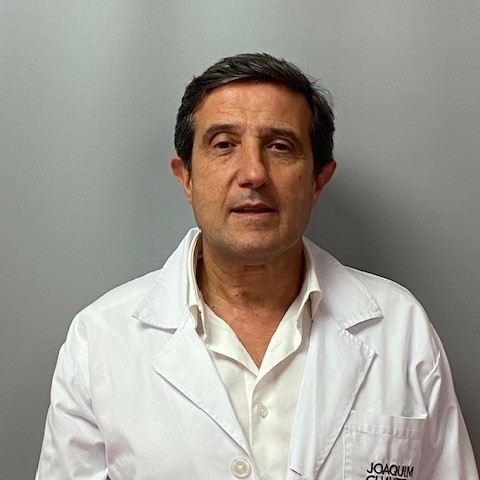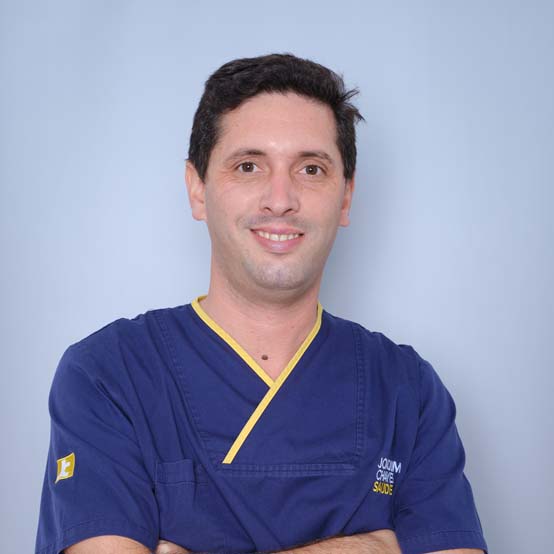It is estimated that 13% of the world population suffers from obesity, a disease where an excessive buildup of body fat can reach levels that compromise health, increasing the risk of heart disease and premature death. The good news is that there are safe and effective treatments. Discover the new therapeutic approaches to obesity.
1. Clinical treatment of obesity
Clinical treatment of obesity is the most common and first to be implemented. This should be led by an endocrinologist, with the accompaniment of a nutritionist and psychologist. This approach involves dietary changes, physical exercise and, if necessary, medication.
Dietary changes
Dietary changes are aimed to maintain an energy deficit. This way, the body mobilises stored calorie reserves to obtain energy, resulting in weight loss over time. The formula is simple: to lose weight, the energy expended must exceed the energy consumed.
These days, diet plans for weight loss have evolved away from a restrictive approach to adopt a more customised approach adapted to individual preferences and needs. The goal is to include foods that people like, with a focus on nutritional quality, to make the plan more sustainable in the long term. Furthermore, the nutritionist plays a key role in re-educating the patient, empowering each person to make informed choices on their own, throughout their life.
Physical exercise
Exercising regularly is an essential part of weight loss and maintaining a healthy lifestyle. The basis of this process lies in the combination of physical activities that promote energy expenditure, help build muscle mass and meet each person’s preferences. Therefore, even those who don’t like exercising can get individual advice to make it enjoyable.
For this, it is important to have the support of a Personal Trainer who will take into account your personal tastes, fitness level and goals, to recommend resistance and cardio training to build muscle mass. Group classes at a gym can also be included to increase engagement and motivation. As a result, the patient loses weight, improves overall health and creates lifelong exercise habits.
Medication
In some circumstances, and as a complement to the measures mentioned above, the physician may find it necessary to prescribe medication to treat obesity. Anti-obesity medicines are safe, as they undergo a series of safety and efficacy studies before entering the market.
It is up to the physician to decide which type of medication is most suitable for each case. There are several alternatives with different mechanisms of action, such as appetite suppressants or fat absorption inhibitors, and these must be prescribed by a physician: not only can they interact with other medication, but their safety and efficacy varies from person to person. Therefore, medication alone is not an adequate weight loss therapy. This must always be complemented by other treatment measures in accordance with medical advice.
2. Surgical treatment of obesity
Obesity Surgery is considered when other types of treatment were not effective and obesity is causing or can cause serious illness. This surgery involves reducing the size of the stomach, thus limiting the amount of food the patient can eat. This procedure makes the patient feel full more quickly, thereby reducing the calorie intake.
The intervention is performed laparoscopically, in other words, the physician inserts the necessary instruments through small incisions in the abdomen, including a micro camera to visualise and guide the surgery. Due to the less invasive nature of the procedure, the recovery time is usually shorter, varying between 2 and 7 days. The patient can continue to eat normally to allow the digestive system to recover. Joaquim Chaves Saúde offers all of the technological and human resources for this treatment.
The Directorate General for Health defines some eligibility criteria for obesity surgery, which should be seen as a benchmark and not as a rigid reference. It is up to the multidisciplinary team to accurately assess each case. The proposed criteria are the following:
• Body Mass Index equal to or above 40 kg/m²;
• Body Mass Index equal to or above 35 kg/m² with other associated diseases (diabetes mellitus, dyslipidaemia, sleep apnoea, high blood pressure, degenerative joint disease, among others);
• Age between 18 and 65 years;
• Failure of non-surgical weight loss measures during at least one year;
• Obesity not caused by endocrine disease;
• Capacity to understand the surgical procedure and comply with long-term follow-up;
• Absence of psychiatric disorders and/or alcohol or substance dependence;
• Acceptable surgical risk.
The possibility of updating the Body Mass Index Value to 35 kg/m², regardless of associated comorbidities, is currently being considered. The goal is to widen the access to treatment for patients who would not achieve effective results otherwise.
3. Endoscopic treatment of obesity (Apollo Method)
This procedure involves stitching the stomach wall to reduce its size, allowing the patient to feel satiated with less food intake. The Apollo Method Surgery is carried out under anaesthesia and takes approximately 60 minutes. As this is one of the safest and most effective endoscopic procedures, patients can be discharged the day after surgery. This minimally invasive technique has produced excellent results in the short and medium term.
This technique is safe and minimally invasive, with low rates of pain and infection and no scars.
Joaquim Chaves Saúde, advanced obesity treatment
Clínica Cirúrgica de Carcavelos has a team specialised in treating obesity, to help you regain your well-being and quality of life. Book your appointment now, on our website or app, and count on us to accompany and support you at every stage of your treatment.






